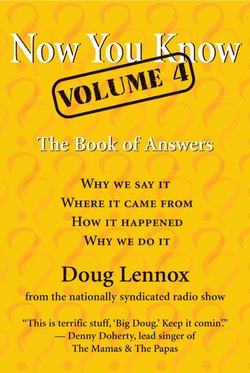Читать книгу Now You Know, Volume 4 - Doug Lennox - Страница 14
На сайте Литреса книга снята с продажи.
ОглавлениеWhat is the unique story behind the Victoria Cross?
The United Kingdom’s Queen Victoria created the Victoria Cross in 1856 to recognize individual acts of gallantry by soldiers and sailors of the British Empire. The new medal came on the heels of, and was inspired by, the heroics of the Crimean War fought by Britain, France, the Kingdom of Sardinia, and the Ottoman Empire against Russia between 1854 and 1856. To this day each Victoria Cross is forged from the melted-down metal of Russian cannon captured during the Crimean War. Unlike some other British medals, the Victoria Cross can be awarded to any member of the military regardless of rank. To date, at the time of this writing, 1,355 people have received the medal.
Who were the first and last Canadian recipients of the Victoria Cross?
On August 9, 1945, navy pilot Lieutenant Robert Hampton Gray became the ninety-fourth, and last, Canadian to win the Victoria Cross. He was awarded the medal posthumously for bravery during an attack on a Japanese destroyer on the final day of World War II. The first Canadian to receive the medal was Lieutenant Alexander Roberts Dunn, who won his for bravery during the Charge of the Light Brigade in 1854 at the Battle of Balaclava in the Crimean War.
Canada’s last living Victoria Cross recipient was Ernest Alvia “Smokey” Smith, who died at his home in Vancouver in August 2005. Smith, who won his medal in Italy in October 1944, single-handedly saved his company from a German counterattack by three tanks, two self-propelled guns, and thirty infantrymen.
Why is someone of key importance to a team leader called a “right-hand man”?
The term right-hand man refers to someone indispensable to the person in charge and derives from the military. Today, when soldiers line up on a parade square, they are copying the alignment employed when armies used to face, then approach, each other in lines for mortal or pitched combat. The tallest or “right-marker” is the first called into position, and all others line up in a sequence of diminishing height to his left. The right-marker is the anchor and reference for all verbal commands off whom the other soldiers react both on the parade square and during battle.
A line of soldiers is called a “pitch.”
Why, when we want someone to hurry, do we say “on the double”?
In civilian life “on the double” means to do something in a hurry. In the military, where the expression originated, it is usually a clear command most commonly barked by a drill sergeant ordering his men to do a task “on the double,” meaning to “stop walking and start running.” Just as bugles were used to relay drills to soldiers in the field, drums were utilized on ships to summon sailors to their battle stations. Double was an early reference to increase the drumbeat appropriately to convey urgency to all hands.
What is a “Mexican standoff”?
The classical Mexican standoff occurs when three people level guns at one another in such a way that if one gunman shoots a member of the trio the person not being shot at will in all likelihood kill the first shooter. In other words, a stalemate ensues. It’s a no-win situation. The expression’s roots are in the American West where conflicts with the original Mexican settlers were often resolved with guns and even war, which is how Texas, New Mexico, and California became part of the United States. The term Mexican standoff came out of these struggles as an ethnic slur, just as gringo arose as an epithet for the other side.
Why is a lightning-quick military attack called a “raid”?
A sudden “raid” is usually over quickly, with the attackers strategically withdrawing as soon as their mission is completed. It’s always a surprise attack. Consider that the words road and rode both come from ride, as in horseback riding, and then consider that lightning-quick surprise attacks resulted from horsemen charging down a road. Rade, “a riding, journey,” is the Old English and Scottish derivative word for raid. When a hostile incursion came galloping down the road, the cry of “Rade!” went up, which easily became “Raid!” when retold in literature.
